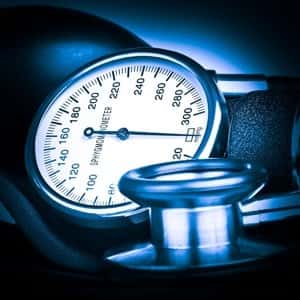
A few weeks ago we shared a shocking story about an internal feud going on at the FDA around a category of blood pressure-lowering drugs called ARBs:
ARBs ON THE U.S. MARKET
- Atacand (candesartan)
- Avapro (irbesartan)
- Benicar (olmesartan)
- Cozaar (losartan)
- Diovan (valsartan)
- Edarbi (azilsartan)
- Micardis (telmisartan)
- Teveten (eprosartan)
The furor was all about a link to cancer, something we had been concerned about since an article appeared in Lancet Oncology over three years ago (online, June 14, 2010). The fuss was all about the FDA’s analysis of the risk.
The executives at the agency sounded an all-clear message on June 2, 2011. But an FDA safety reviewer, Thomas Marciniak, MD, analyzed the raw data and concluded that there was about a 24% increased risk of lung cancer linked to ARBs. Dr. Marciniak encouraged his FDA colleagues to alert doctors and patients to the possible problem.
You can read the whole sordid story at this link. The FDA doesn’t seem to know what to do about Dr. Marciniak’s analysis. His direct boss, Ellis Unger, MD, was quoted in the Wall Street Journal: “We have no reason to tell the public anything new.”
NEW ARB SCANDAL:
Now a whole new controversy has erupted over valsartan (Diovan), the best selling ARB in the U.S., if not the world. Although it has made headlines and captured national attention in Japan, the story has been pretty much ignored in the U.S. except by the financial press. The bottom line appears to be that data supporting the benefits of Diovan were “manipulated.” The Wall Street Journal (Aug. 12, 2013) tried to say it gently: “Two university-led investigations in Novartis-related research discovered data had been altered to produce inaccurate results.”
In addition to the data manipulation, there have been charges of conflict of interest. Key contributors to the results of the research were employees of Novartis, but they apparently did not disclose their relationship with the company. Six articles on the Kyoto Heart Study published in various journals including the European Heart Journal and the International Journal of Cardiology, have been retracted.
So what’s the big deal? The bottom line appears to be that the researchers suggested valsartan did more than just lower blood pressure. Although that’s often all it takes to get FDA approval for treating hypertension, the real goal is to reduce the consequences of high blood pressure. Just lowering a number is meaningless if it doesn’t help prevent the complications of hypertension. And that is where the Japanese researchers apparently fudged the data. They suggested that Diovan could reduce the risk for strokes, angina and heart failure. There is now doubt about those conclusions.
A NEW SERIOUS VALSARTAN SIDE EFFECT EMERGES
In addition to all the bad news about manipulated data, Japanese regulators have just required Novartis to warn physicians and patients that Diovan can cause five potentially life-threatening skin reactions:
- Stevens-Johnson syndrome (SJS)
- Toxic epidermal necrolysis (TENS)
- Erythema multiforme
- Pemphigus
- Pemphigoid
Anyone who develops a rash while taking valsartan should contact a physician immediately!
Here are some other side effects to be aware of:
VALSARTAN (DIOVAN) SIDE EFFECTS (and other ARBs)
- Dizziness, fatigue, low blood pressure
- Cough
- Headache
- Upper respiratory tract infections, sinusitis, stuffy nose,
- Digestive discomfort, diarrhea, stomach pain, back pain
- Joint pain, arthritis
- Swelling of the face, lips, mouth, tongue or throat (Requires immediate emergency medical treatment )
- Potassium retention and buildup (hyperkalemia)
- Kidney damage, liver damage
- Hair loss
WHAT TO DO?
No patient should EVER stop taking a medication without first checking with the prescriber. That holds for valsartan and other ARBs. That said, it is unlikely that your physician will have heard about the Japanese scandal involving Diovan and altered data. Your doctor may not be aware of the FDA dust-up regarding ARBs and cancer. You may want to print the Wall Street Journal article and show it to your physician. You may also want to read about ARBs and cough. Although most prescribers believe ARBs don’t cause coughs, some people are susceptible to this side effect.
Share your own experience with ARBs or other blood pressure medications below. If you have taken such drugs safely and achieved good results we would like to hear your story. If you have experienced side effects, please let us know. And if you would like to know more about natural approaches to controlling blood pressure, check out The People’s Pharmacy Quick & Handy Home Remedies: Q&As for Your Common Ailments.

